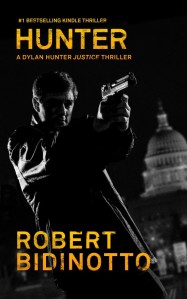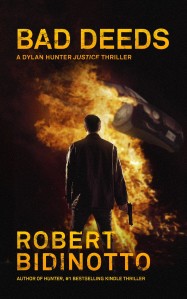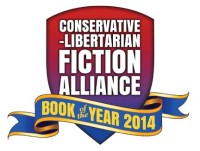Photos by Brian Killigrew
In Part 1 of this interview, #1 New York Times best-selling author Lee Child described Jack Reacher, the “vigilante” (Child’s word) hero of his world-famous thriller series. He also told of his childhood in the tough city Birmingham, England, and how his frequent involvement with street violence planted seeds that later sprouted into the Reacher character.
In Part 2, Lee cited the seminal writers that influenced his own fiction; his career in British television; and the traumatic mid-life career change that propelled him into writing fiction.
Here, in the concluding segment of our three-part interview, he discusses the craft of fiction-writing; the mythological basis of the Reacher character; his maverick political outlook; and his unconventional advice for writers. (If you click on the photos, your browser may show them in an enlarged view.)
~*~
The Vigilante Author: What, to you, is a thriller?
Child: That’s an incredibly difficult question. Ultimately, there are only two kinds of books. There’s the kind of book where reading it on the subway you end up on Coney Island because you missed your stop, and there’s the kind of book where you don’t. That’s all. It has got to be a matter of degree. If suspense becomes the preeminent factor, then it’s a suspense book. If suspense is managed by having dramatic situations and danger and violence, then it probably is a thriller.
The Vigilante Author: So, you think the defining characteristics would be action, adventure, and involvement with violence in some way?
Child: Yes. The best technical answer I can give is probably that the character relationships follow some kind of mythical, legendary path. But the more important thing is the time management in the book. A thriller or a suspense book or my kind of book, it starts and it carries on. There is never a moment unaccounted for.
The Vigilante Author: The pace is unrelenting.
Child: Yes. The pace might not be fast, but it doesn’t relent. If you read other books, like traditional mysteries, crime books, or P.I. books, often there’s a chapter that says, “On Friday, I did my invoices and did my laundry, took a shower, went to a movie—”
The Vigilante Author: Or cooked a meal.
Child: Or cooked a meal. In other words, whatever is urgent in the book is actually not all that urgent, because they’ve just taken a day or week or three weeks off. The thrill comes from managing the pace so that it’s clear the events are urgent.
The Vigilante Author: What about the issue of comparing thrillers and commercial fiction with so-called literary fiction?
Child: It’s an issue that doesn’t come from our side. We’re happy to let those guys do whatever it is they want to do. The issue always comes from their side, because they’re jealous about our sales. They get all stirred up about it, and quite rightly. I probably have more books shoplifted out of every title than they sell in their entire lives. They start to feel troubled over it, and they want a bit of our action; so they go slumming and try to write a thriller. And it’s always an embarrassing failure. Whereas any one of us—I know this for a fact, having talked to my writer friends, and we are not idiots—have read all the great books in the world, and we could write a literary novel easily. Michael Connelly, anybody like that, could invent a different name, write a literary book. Him or me, it would probably take three weeks to write that kind of book. It would sell three thousand copies like theirs do, and it would probably be well-respected. We can do what they can do, but they can’t do what we do; and that’s where the friction comes from.
The Vigilante Author: What do you guys do that they can’t?
Child: Well, we have things like characters and stories—and beginnings, middles, and ends—all of that kind of stuff. Somebody asked me, How would I write one of these literary books? And I said, “Just take out the characters, the pace, the excitement, and the story, and that’s pretty much it.”
But good luck to them—I mean, it’s history that will judge eventually. I’m quite prepared to imagine that one hundred years from now at Yale, they’ll be talking about Martin Amis and they won’t be talking about Lee Child. That’s fine by me. But at the moment, I would rather have my sales than his sales, because I don’t care what comes one hundred years from now.
What I love about the book business is there’s room for an infinite number of people. The public consumption of books—we always worry that it’s going down, that nobody reads anymore. But actually, globally, the consumption of books is so enormous that for the individual author, we can all make a good living. We’re not cannibalizing each other, and I’m really happy to pass my readers to somebody else and vice-versa, because that’s how it happens.
The Vigilante Author: It’s not a zero-sum game.
Child: It absolutely isn’t.
THE ART OF FICTION
The Vigilante Author: In terms of what you think is primary in storytelling, you’ve said there are plot people, and character people, and you’re a character person.
Child: Yes, and I think that all readers are character people. It’s almost impossible to remember a book solely for its plot or its plot device. You say “Agatha Christie,” and people remember Hercule Poirot and Jane Marple. Almost every book is remembered for character. I know that’s true from the example of the Reacher books. People say to me, “Oh, I love Jack Reacher; I love that time where he did this or that.” But the this or that is actually not in my book; it’s in somebody else’s book. They’re remembering the character and confusing the plot.
The Vigilante Author: So, you consciously thought about a character-driven series from the beginning?
Child: Yes, simply because as a reader, that’s what I loved.
The Vigilante Author: What about the issue of realism versus stylization in literature? Your dialogue, for example, is not a literal transcription of exactly the way people talk. You stylize.
Child: Yes. I actually once won an award, a newspaper poll or something, in Fort Worth, Texas, for great dialogue; my dialogue was allegedly the most realistic. Actually, nobody’s printed dialogue is anywhere near realistic—it’s a million miles away from realistic. Because we all know that if you listen carefully to how people actually talk, it’s endless stops, starts, incoherencies, stumbles, ums, ers—much worse than you think.
Also, I don’t use any ellipses or dashes at the end of lines to imply interruptions or incomplete sentences. It’s always either a period or a question mark. I don’t use any dialects, deliberate misspellings to suggest dialect or accent. It’s all just plain English, and yet people say it’s realistic. It’s really not—it’s about the convention of how people read dialogue.
But I also work very hard at it. There’s a very subtle effect that you can get by the order of words—in particular, the rhythm of the sentence. You can have the same word written three different ways, and it will appear that it’s three different people speaking it, simply by the order of the words and where the emphasis lies rhythmically. I love doing that, because it’s the ultimate conjuring trick to make people think that your dialogue is realistic.
The Vigilante Author: But it’s always stylized.
Child: Always. It’s highly, highly formalized.
The Vigilante Author: Persuader was my introduction to your novels, and it was a wonderful introduction to Reacher because it was told first-person. Rather than looking at him from the outside, you can get right inside his skull. Killing Floor also was a first-person story, which was a great way to launch the series. Do you plan to return to first-person narrative some day?
Child: I would always do first-person if it were possible to tell that story in first-person. Most of the time, it’s not possible, because you need some third-party point of view in order to do the plot that you want to do. But if it’s possible to do first-person, I always will do first-person, because I agree—it’s very intimate, a very fast connection between the character and the reader.
The Vigilante Author: I understand that you don’t do a lot of advance outlining in your stories. Instead, you look for some hook or some key.
Child: Yes, I have what I call The Thing, which is the main trick or surprise or scenario or whatever. You just have to start somewhere and work towards it and feed off it.
The Vigilante Author: But you have an idea of where you are headed, the idea of a climax?
Child: Kind of, but that can change totally. With the book I’m writing for next year, Play Dirty [now retitled Nothing to Lose], I’m just about hitting the climax time and setting up the final scene, and I have no clue what’s going to happen—no idea whatsoever how it’s going to unfold.
 The Vigilante Author: Of your own work, do you have a favorite, one that you say, “This one I really hit out of the park; it’s closer to everything that I wanted to get down on paper than any of the others”?
The Vigilante Author: Of your own work, do you have a favorite, one that you say, “This one I really hit out of the park; it’s closer to everything that I wanted to get down on paper than any of the others”?
Child: You know, the honest answer to that is: the next one. I think all writers are not satisfied with what they’ve done in the whole. The thing that propels you is the thought that next time, maybe I’ll nail it. And writers are genuinely most interested in what they’re going to do next rather than what they have done.
But of the ones that exist already, probably Persuader. It does not hit the target for me 100 percent; but there’s only one element in it that I now regret, and it was pretty close to a total success in terms of what I wanted to do.
The Vigilante Author: It worked for me!
Child: If I look back on it, I wish I could write it again, over and over again.
A POLITICAL MAVERICK
The Vigilante Author: Anything you want to say about the next book? [Note: The interview took place in 2007; there have been subsequent books.]
Child: Nothing to Lose will be a Reacher book dealing with the flip side of the Iraq war—people coming home maimed, people not wanting to go back. You know, Reacher is career military; Reacher has got a very strong sense of duty; so what’s Reacher’s take on Iraq? It’s a book that’s going to get me in a lot of trouble. My career might be over next year.
The Vigilante Author: I doubt it.
Child: But it’s a book that had to be written.
The Vigilante Author: You walk a very interesting tightrope in the political area in your books. You’ve got this tough guy—a strong, independent, iconic, individualist character. Like The Man with No Name, he rides in with the sunrise and rides off into the sunset. Totally self-contained, which appeals to the rugged American individualist spirit that I think resonates with many conservatives.
On the other side of it, though, you have him involved with any number of different causes that are normally liberal—in Echo Burning, it was illegal immigrants, and elsewhere you’ve had battered women. Is this just something that flows out of who you are?
Child: Yes, it flows out of what I am. I tread relatively cautiously because I don’t want to make them political books, in that sense. I see Reacher as post-everything—he’s almost post-political. In fact, America has a tremendous amount of self-delusion going on, and I try and use Reacher to illustrate that. Because America is reckoned to be about 50 percent conservative; but in terms of how we think of each other and our innate instincts, America is probably 75 or 80 percent liberal. I mean, usually amongst American people, there’s no real desire to harm or mistreat each other; in fact, there’s a desire to look after each other and respect each other—which is actually a kind of liberal position, even though people don’t characterize themselves as liberals.
So, I try and use Reacher—instinctively attractive to the redneck right—and I have him try and do stuff that just pokes them a little bit with a stick, as if to say, “This is what you should be doing, too.”
But the same for the left. Reacher is a person of liberal instincts, but absolutely not an organization man. He doesn’t want to belong to anything, he’s anti-social. He’s not a member of society, he stays out of society—which is inherently not a liberal position.
I love the idea that self-reliance is identified especially as a Western-style characteristic. Because what I’ve noticed anecdotally is the states that describe themselves as most self-reliant are the states taking the most welfare handouts out of Washington. In terms of federal funding, you’ve got a binary possibility: You either send more than you receive, or you receive more than you send. The states that receive more than they send are on welfare—let’s be honest about that. Those are the states where people shout the loudest, “I’m self-reliant; get the government off my back.” I’m like, “I would love to get the government off your back, because then I could keep my money.”
The Vigilante Author: Are you talking about agricultural-subsidy states?
Child: Places like South Dakota, for instance. Every single person I’ve ever met from South Dakota says, “You know, we’re a pretty self-reliant people.” I’m saying, “So why are New Yorkers building your roads and your bridges and that kind of stuff?”
The Vigilante Author: Absolutely.
Child: End of rant.
“OLD WEST SENSIBILITY”
The Vigilante Author: It’s a rant that will resonate with our readers.
This business of the Western ethos: Even though you were born in Britain, I never would have guessed from reading a book like Persuader that it was by anyone but an American, born and bred—maybe somebody from Wyoming. You seem to have nurtured in yourself from an early age a fundamental American sensibility or sympathy—or maybe it’s the “Old West” sympathy.
Child: I think that “the Old West” is a good way of describing it. You know, a chimpanzee shares 99 point something of our DNA. That’s not because humans are descended from chimpanzees, okay? Technically, what happened is both humans and chimpanzees are descended from a much earlier common ancestor.
It’s the same thing with me and the Old West sensibility, because the Old West sensibility was not invented in America in the Old West. It’s actually pretty much a lock, stock, and barrel import from medieval chivalrous sagas in Europe, back when Europe was under-populated, and much of it wild and dangerous in the same way that the West was considered to be. The same stories were told in the thirteenth and fourteenth centuries in Europe. Exactly the same ethos applied there.
So the Westerns are really the descendents of much earlier chivalric stories, which in turn were descendents of much earlier Nordic sagas, and so on. The point is that all storytelling is basically on the same track. I could prove that, if we have time. Read the Theseus story as written by Plutarch. Plutarch’s Theseus story is word-for-word Dr. No—it absolutely is. That’s thirty-five hundred years old, that story, and it’s absolutely a blueprint for all of the James Bond books.
The Vigilante Author: Your comments on the distinction between American reactions to your work and European reactions fascinated me.
Child: The British are in the same camp as the Americans: they’re happy with it. But the Germans, Dutch, Scandinavians—they buy the books, but they are appalled that they love him. He is such a vigilante; they don’t approve of him. It’s like the lovable but awful cousin or something like that.
The Vigilante Author: Your [2007] novel, Bad Luck and Trouble. Given the way it starts, with that opening helicopter scene, I had a hunch that it would have to end in the same kind of situation. I said, “I know where this is going—but the ride is going to be fun!”
 Child: Yes, Bad Luck and Trouble opens with the helicopter, and because of the nature of revenge, you would be kind of surprised if they didn’t opt to use a helicopter at the end.
Child: Yes, Bad Luck and Trouble opens with the helicopter, and because of the nature of revenge, you would be kind of surprised if they didn’t opt to use a helicopter at the end.
It’s really a perfect example of “The Thing” that I mentioned earlier. The Thing for Bad Luck and Trouble is a reunion. In the military, Reacher, operating as a member of a team, had trusted equals rather than being a loner. Ten years later, he’s been very confident about the path he’s chosen. Now, he’s meeting with these people that at one time meant everything to him. These are true comparisons for him. But Reacher is perpetually a bit marginal about money. So he meets with these people again after ten years, and he’s going to think: “Who’s made the right choice here, me or them? Are they dumb, or am I dumb?” There’s a kind of wobble in his self-confidence, because only these people could induce that.
So, it was all about reunions—the good, the bad, the emotion, that special bond he gets from people that he’s worked with very, very closely.
The Vigilante Author: Also, a bit of self-assessment.
Child: Like I say, nothing would provoke that except for this situation. So the issue was how to get into the reunion situation, and that’s just the way I chose to do it.
“YOU’VE JUST GOT TO DO IT YOUR OWN WAY”
The Vigilante Author: What advice would you give aspiring novelists?
Child: Normally what I say is: Ignore all advice. Like I said before to another question, it’s about producing an organic product, and you cannot do it by committee.
You cannot think, “Okay, what I would really like to do here is have my character pull out a gun and shoot this guy in the head. But this book says, It’s too early to introduce that; and this book says, That should happen in the second act; and this book says, You should never show your character in a bad light where he would do something underhanded like that. So, maybe I should have him provoked—no, maybe I should have him provoked by two people, or—no, maybe I should leave it for a little bit later in the book.”
If you do that, you’re going down a slippery slope. If you want to have the guy pull a gun and shoot somebody in the head, then that’s what you do. If you make every single decision based on your own 100 percent personal preference, then, at the end of the book, you’ve got a living, breathing, organic piece of work. If one human being likes it—i.e., you—and if one human being in the world likes it—the chances are very strong that others will, too.
So that’s what I say: Ignore all advice, write exactly what you want, even if you’re certain that everyone else will hate it.
The Vigilante Author: You see no value in fiction-writing courses and books?
Child: I’m very skeptical about that, to be honest. I read fiction-writing books out of interest and because I’m a compulsive reader. I’ve never found anything in them of any value. Very occasionally something comes through that clarifies something you’re already thinking or short-circuits you into a conclusion that you were already on your way to. But really, of very little practical value.
I’m out of sympathy with the American way of endless education. And in a sense, I think education is a bit of a cop-out. Somebody says they really want to write a book, and then the next sentence is that they will go and do an MFA. Well, if you want to really write a book, then write a book. The MFA is just a way of putting it off; it’s procrastination.
And who is teaching this MFA? Are these major bestselling authors who have actually walked the walk? No, they’re not, because major bestselling authors don’t teach at college; they’re doing their next book, or they’re sitting on a beach somewhere having a good time.
So I’m not totally convinced about the value of it. I see the only qualification as having read a lot. Ignore all the classes, and write exactly what you want to write. Otherwise, it’s a dead product, dead at its heart because it carries no conviction.
And if you react to what you think the market wants, you’re way behind the curve. If you studied the market right now, by the time you’ve written and sold your book, and it’s gone through the sausage machine and become published, that’s four years from now. So a product four years in the future is trying to match something four years out of date, and that’s stupid.
The Vigilante Author: And there is a lack of authenticity.
 Child: Yeah, absolutely. And authenticity is so subtle. Most people call it “voice,” and to me, voice and authenticity are kind of the same thing. If it’s strong and true, it works perfectly; if it’s in any way slightly fractured by any kind of a compromise, then it just falls apart.
Child: Yeah, absolutely. And authenticity is so subtle. Most people call it “voice,” and to me, voice and authenticity are kind of the same thing. If it’s strong and true, it works perfectly; if it’s in any way slightly fractured by any kind of a compromise, then it just falls apart.
The nearest analogy I can give is baseball batters. There’s absolutely no consensus whatsoever about batting stance or swing or style—everybody does it themselves. Take any batter you like; imagine saying, “Okay, you can’t swing like that; you’ve got to swing like these other guys.” It just ruins them completely. They would just never get anywhere.
The Vigilante Author: They’d become so self-conscious.
Child: Absolutely. Baseball is highly coached and highly ritualistic; and yet there’s no attempt whatsoever to standardize your swing, because it’s just got to be what works for you. It’s the same thing with writing. You’ve just got to do it your own way.
The Vigilante Author: And you have. Listen, this has been a pleasure. Thank you so much.
~*~
For more information about Lee Child, and to participate in his online reader forum, visit his website.
(This interview was first published in the July/August 2007 issue of The New Individualist, (c) 2007 by The Atlas Society, and is reprinted with permission.)





 Photo (c) by Debbie Scott
Photo (c) by Debbie Scott




